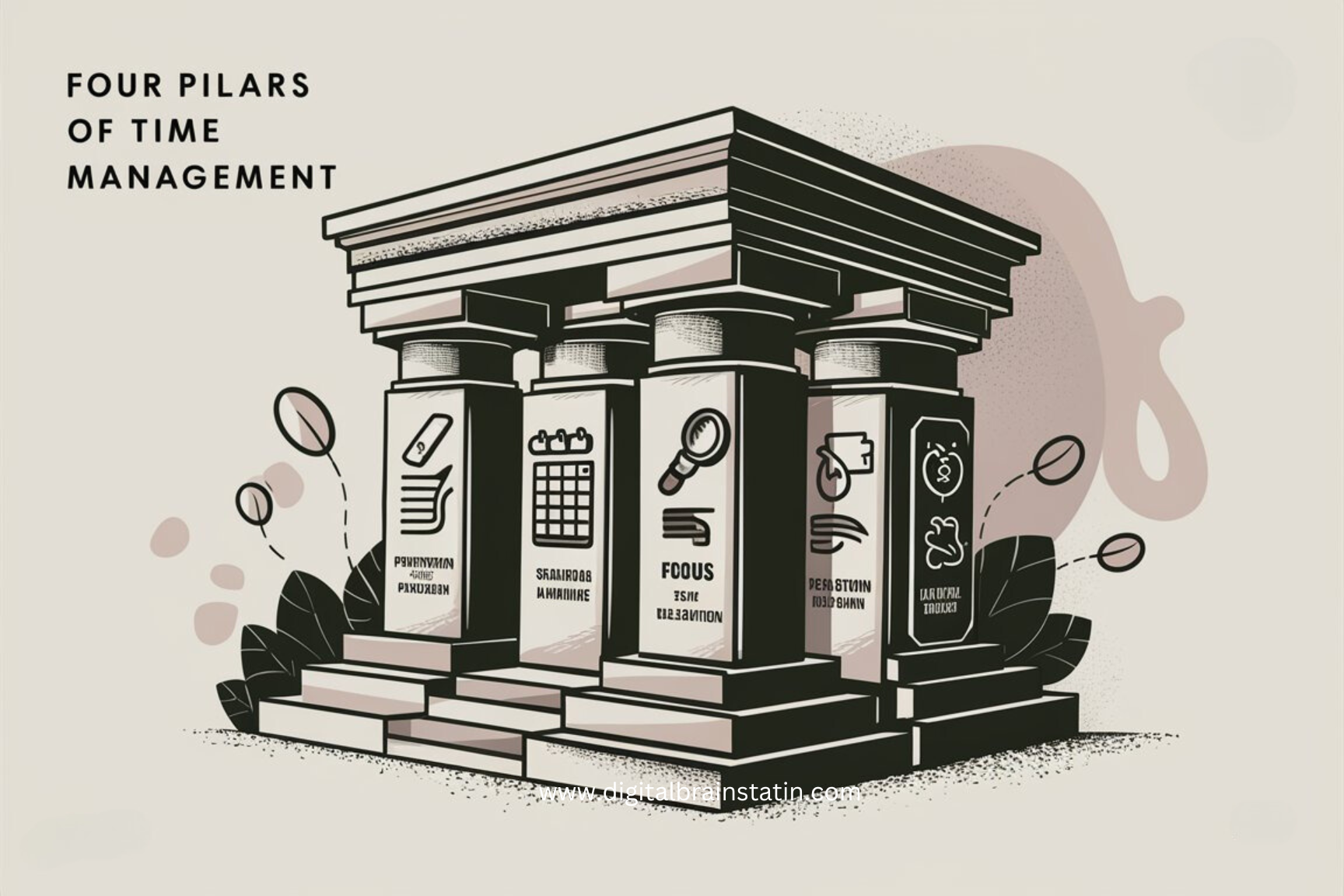Time management is a crucial skill that can greatly impact our productivity and overall success. By effectively managing our time, we can accomplish more in less time, reduce stress, and achieve a better work-life balance. To master time management, it is essential to understand and implement the four pillars of time management. Let’s dive into these pillars and explore how they can help you make the most of your time.
1. Planning
Planning is the foundation of effective time management. By setting clear goals and priorities, you can create a roadmap for your day, week, or even month. Start by outlining your tasks and activities, then allocate time slots for each one. A well-thought-out plan allows you to stay focused and organized, ensuring that you make progress towards your goals.
- Set clear goals and priorities.
- Create a detailed plan for your tasks.
- Allocate specific time slots for each activity.
- Regularly review and adjust your plan as needed.
2. Prioritization
Once you have a plan in place, the next step is to prioritize your tasks. Not all tasks are created equal, and some are more important and urgent than others. By identifying your priorities, you can focus on what matters most and avoid wasting time on less crucial activities. Use tools like the Eisenhower Matrix to categorize tasks based on their importance and urgency.
- Differentiate between important and urgent tasks.
- Use tools like the Eisenhower Matrix for prioritization.
- Focus on high-priority tasks to maximize productivity.
- Be prepared to adjust priorities based on changing circumstances.
3. Organization
Organizing your time, space, and resources is essential for effective time management. Keep your workspace tidy and clutter-free to minimize distractions and improve focus. Use digital tools such as calendars, task managers, and project management software to keep track of your commitments and deadlines. By staying organized, you can streamline your workflow and avoid wasting time searching for information or resources.
- Maintain a clean and organized workspace.
- Utilize digital tools for scheduling and task management.
- Establish routines and systems to streamline your workflow.
- Regularly declutter and organize your digital files and documents.
4. Delegation
Delegation is a powerful time management strategy that involves assigning tasks to others to free up your own time for more important activities. Identify tasks that can be outsourced or shared with colleagues, and delegate them accordingly. Delegating not only helps you focus on high-priority tasks but also fosters teamwork and collaboration within your organization.
- Identify tasks that can be delegated to others.
- Communicate clearly and provide necessary instructions to delegates.
- Regularly follow up on delegated tasks to ensure progress.
- Recognize and appreciate the efforts of those who assist you.
Conclusion
Mastering the four pillars of time management – planning, prioritization, organization, and delegation – is key to improving your productivity and achieving your goals. By implementing these pillars into your daily routine, you can make the most of your time, reduce stress, and enhance your overall efficiency. Remember, effective time management is not about working harder but about working smarter. Start incorporating these pillars into your life today and watch your productivity soar!


